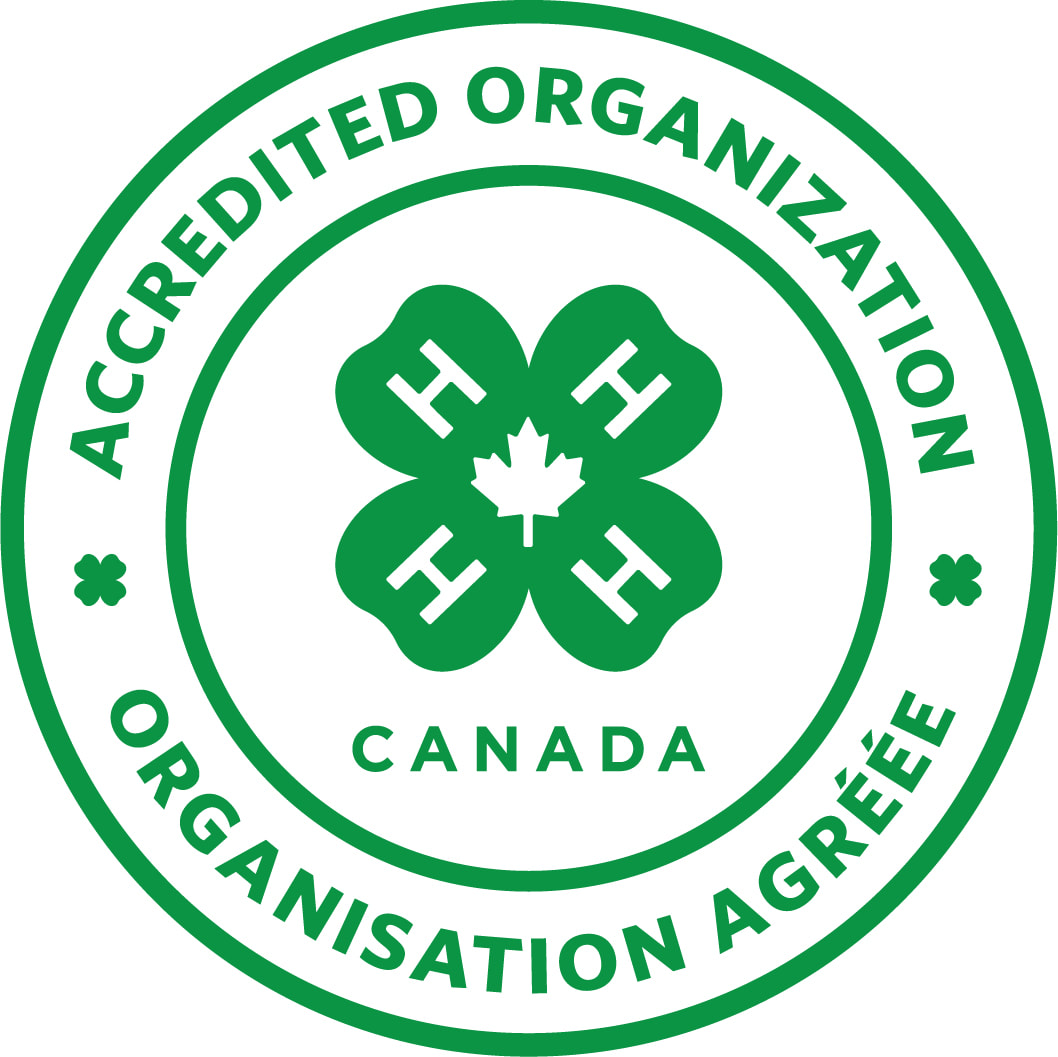|
With your support, vision and spirit, the Saskatchewan 4-H Foundation will bridge our deep roots with a bright future. You contribute meaningfully to our world by helping to catapult our people and our work to new levels of excellence, imagining and creating a more sustainable future. Together we can transform our province, our country, and our world. Thank you for supporting the Saskatchewan 4-H Foundation. |
*Donations of more than $20 are eligible for a charitable tax receipt.
Plan Your Gift
GIFTS Of cash
Gifts of cash are easy, eligible for a charitable tax receipt, and go straight to work in helping 4-H Saskatchewan deliver programs and resources for 4-H members and leaders. Click the “donate” button above or contact the 4-H office to give today!
GIFTS Of Securities
Gifts of stocks, bonds, or mutual funds are eligible for a donation receipt for the fair market value of the securities on the date of transfer to the Saskatchewan 4-H Foundation. When you transfer ownership of securities rather than sell, you will not pay capital gains on those securities.
REAL ESTATE, FARMLAND, AND OTHER ASSETS
A gift of real estate to the Saskatchewan 4-H Foundation can be an excellent option for many people. Gifts of property are carefully screened and assessed for suitability before they are accepted by the Foundation. A charitable receipt for gifts of real estate will be issued only after it has been determined that the value placed on the property is correct.
The fair market value of the property will be determined by one or more appraisals. Generally a tax receipt will be issued for the fair market value. The difference between the fair market value and your cost to acquire the property is referred to as the capital gain. With a gift of ordinary property, you will be taxed on 50% of this gain. In order to limit or eliminate this tax, you may elect the deemed proceeds to be any amount between the original cost and the fair market value. The Foundation may then issue a receipt for this elected value. If the real estate given is a principal residence, ecologically sensitive land or certified cultural property none of the capital gain is taxed.
Donated real estate will generally be sold, unless the Foundation deems that it is useful for a specific purpose. The proceeds from the sale will used to support whatever area you have designated. Ordinarily, the Foundation does not retain real estate for investment purposes, since it requires additional resources to manage the property.
Farm Land
There are also special tax considerations for gifts of farm property. If you are considering a gift of farm land, including gifts of mineral rights, we would be happy to discuss this option with you. The revenue from the rental of this land flows to the specific areas of longevity funds or scholarships that the donors have specified. Should the Board of Governors ever deem it necessary to sell these properties, the proceeds will support the same longevity funds or scholarships that were outlined by the donors.
With gifts of real estate or farm property, the Foundation recommends establishing a gift agreement. This document outlines your wishes for your gift and ensures that the Foundation can abide by them. Since there are many factors involved in a gift of real estate, we strongly encourage you and your advisors to contact the Foundation at the outset so we can work through the process together.
Note: The information provided here is of a general nature and should not be taken as a substitute for professional advice. We urge you to consult with your advisors to ensure that a particular option is right for your financial and estate planning situation.
The fair market value of the property will be determined by one or more appraisals. Generally a tax receipt will be issued for the fair market value. The difference between the fair market value and your cost to acquire the property is referred to as the capital gain. With a gift of ordinary property, you will be taxed on 50% of this gain. In order to limit or eliminate this tax, you may elect the deemed proceeds to be any amount between the original cost and the fair market value. The Foundation may then issue a receipt for this elected value. If the real estate given is a principal residence, ecologically sensitive land or certified cultural property none of the capital gain is taxed.
Donated real estate will generally be sold, unless the Foundation deems that it is useful for a specific purpose. The proceeds from the sale will used to support whatever area you have designated. Ordinarily, the Foundation does not retain real estate for investment purposes, since it requires additional resources to manage the property.
Farm Land
There are also special tax considerations for gifts of farm property. If you are considering a gift of farm land, including gifts of mineral rights, we would be happy to discuss this option with you. The revenue from the rental of this land flows to the specific areas of longevity funds or scholarships that the donors have specified. Should the Board of Governors ever deem it necessary to sell these properties, the proceeds will support the same longevity funds or scholarships that were outlined by the donors.
With gifts of real estate or farm property, the Foundation recommends establishing a gift agreement. This document outlines your wishes for your gift and ensures that the Foundation can abide by them. Since there are many factors involved in a gift of real estate, we strongly encourage you and your advisors to contact the Foundation at the outset so we can work through the process together.
Note: The information provided here is of a general nature and should not be taken as a substitute for professional advice. We urge you to consult with your advisors to ensure that a particular option is right for your financial and estate planning situation.
Gifts of Residual Interest
When donating real estate, for example, you can retain the use of the property for life with a gift of residual interest. You will receive a donation receipt for the present value of the gift that can be used to offset tax on associated capital gains. The gifted asset is not subject to probate.
Donor Designated Funds
Donor designated funds allow you to choose what your gift will support and are eligible for tax benefits in the year your gift is made. Your gift can be in the form of cash, real estate, appreciated stock, or other assets and will be placed in an endowed fund, carefully invested to grow over time. 4-H Saskatchewan will manage the fund according to terms created together with yourself, the Saskatchewan 4-H Foundation, and a financial advisor.
The minimum amount to create a named, donor designated fund is $25,000
The minimum amount to create a named, donor designated fund is $25,000
Joint Fundraising and Other initiatives
4-H Saskatchewan is open to other ideas and working with other organizations which share our values. Please contact the 4-H office if you would like to propose another fundraising option.
Contribution Options:
Current 4-H Needs
The majority of your gift will go towards supporting the needs of the 4-H program in the upcoming year.
Longevity Funds
Your gift will be invested to support the long-term growth and sustainability of the 4-H program.
Future Funds
Your donation will be used to promote leadership skill development, entrepreneurial endeavors and growth of the 4-H program.
Greatest Needs
Your gift will be directed to where it is needed most, based on the discretion of the Foundation Board of Trustees.
Saskatchewan 4-H Foundation Charitable Registration Number: 119140580RR0001


